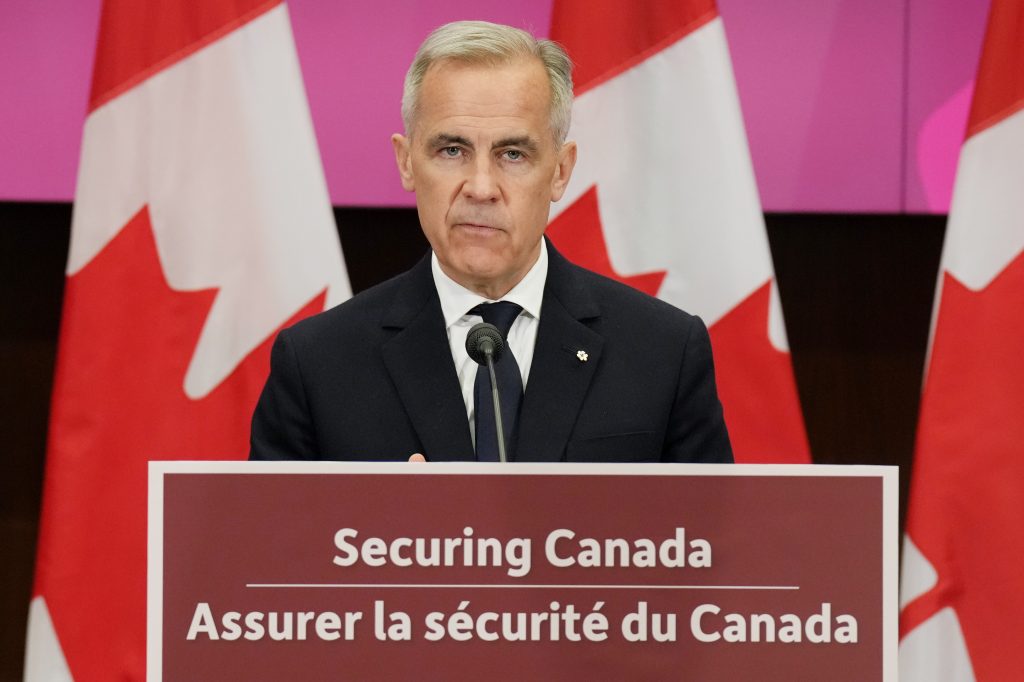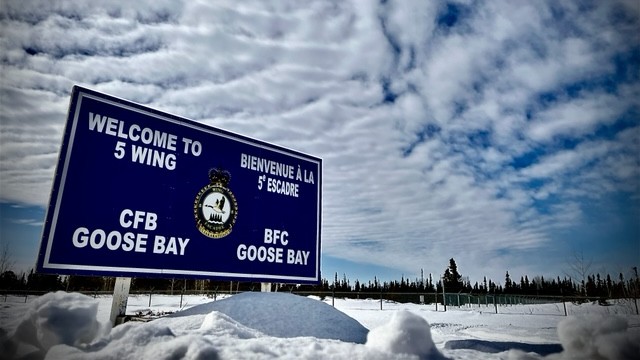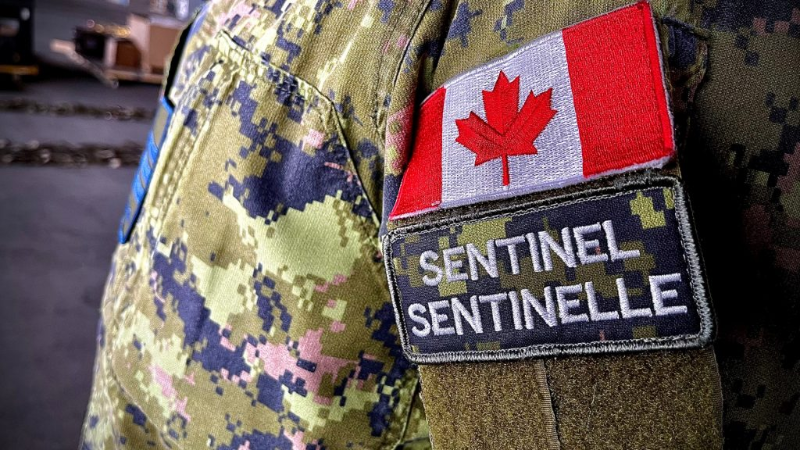‘U.S. dominance over’ Canada’s PM says announcing 2% NATO spending target by March

Saying that the era of the United States’ dominance on the world stage is over, Prime Minister Mark Carney committed his government on Monday to meeting the NATO benchmark target of two per cent of the country’s gross domestic product by the end of the current fiscal year in March.
The prime minister outlined his vision of Canada moving more closely toward European allies in a speech in Toronto this morning.
“We stood shoulder to shoulder with the Americans throughout the Cold War and in the decades that followed, as the United States played a dominant role on the world stage. Today, that dominance is a thing of the past,” Carney told an audience of foreign policy thinkers, national security officials and defence industry business leaders.
Carney said the world is at a turning point — a hinge moment — and that it’s time for Canada to chart its own path.
“The United States is beginning to monetize its hegemony: charging for access to its markets and reducing its relative contributions to our collective security,” Carney said.
“In parallel, the world’s trade routes, allegiances, energy systems and even intelligence itself are being rewired. Rising great powers are now in strategic competition with America. A new imperialism threatens. Middle powers compete for interests and attention, knowing that if they are not at the table, they will be on the menu.”

A senior federal source who spoke to Radio-Canada says the biggest element of Monday’s announcement will be the unveiling of a new defence industrial strategy, which will focus on meeting Canada’s military through homegrown production.
Carney reiterated pledges made during the election campaign to rearm the Canadian military with new submarines, armoured vehicles, drones and other technology. He provided no additional specifics during the speech.
Military members are also expected to get a pay raise, which the Liberals promised in the last election campaign.
In addition, the Liberal government is expected to fold the Canadian Coast Guard entirely into the Department of National Defence — something other countries do. The coast guard is currently a special operating agency under the Fisheries Department with an annual budget of $2.5 billion.
Federal ministers have been quietly signalling the pathway to a two per cent commitment for the last couple of weeks.
The former head of NATO, George Robertson, speaking on CBC’s Rosemary Baron Live on June 1 said Industry Minister Mélanie Joly had assured him that Canada would reach the alliance goal, which was first agreed upon in 2014, by the end of the year.

Last week, at NATO headquarters in Brussels, Defence Minister David McGuinty signalled Carney would address Canada’s defence spending targets before the upcoming leaders’ summit in The Hague.
Hitting the two per cent NATO target would require an investment of between $18 billion and $20 billion.
In his speech, Carney said Canada will sign on to NATO’s defence industrial pledge. Last year, NATO said it wanted its members to develop national plans to bolster the capacity of their individual defence industry sectors, a concept Canada has struggled with — or avoided outright — for decades.
“Our goal is tangible commitments from our allies to provide NATO with the necessary resolve to deter aggression and
protect against all adversaries in all domains,” Carney said. “Our goal is to protect Canadians, not to satisfy NATO
accountants.”
Canada under former prime minister Justin Trudeau faced regular criticism from allies for not meeting NATO’s current target of two per cent of GDP.
The dispute became public at last year’s leaders’ summit in Washington when members of the U.S. Congress from both sides of the aisle called out Canada for not having a plan to meet the goal, unlike all other allies.
Related stories from around the North:
Canada: German, Norwegian officials urge Canada to join ‘familiar family’ in buying new submarines, CBC News
Denmark: Danish PM pledges to support Greenland against Trump pressure, Thomson Reuters
Finland: US, Norwegian forces in Lapland for rapid reinforcement exercise, The Independent Barents Observer
Iceland: Iceland’s FM announces defence review, calls revamped security policy ‘urgent’, Eye on the Arctic
Norway: Preparing for trouble, Norway erects fence at exposed border sections, CBC News
Russia: Drone attack on Russian warplanes, including in Arctic, serious blow to strategic arsenal, The Associated Press
Sweden: Nordic-Baltic region joins forces around Sweden’s CV90, The Independent Barents Observer
United States: White House releases U.S. Arctic strategy implementation plan, Eye on the Arctic



